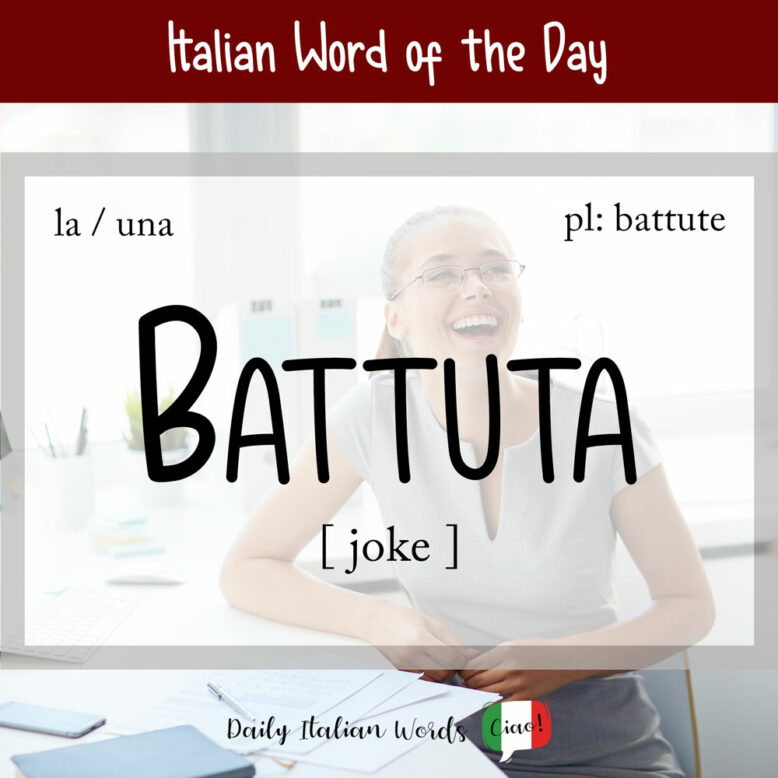The word joke has three main translations in Italian. The one you choose depends on the kind of joke in question.
The first, which is our word of the day, is battuta (feminine, plural: battute).

It refers to any kind of comment that is intended to be witty or humorous. With the exception of battute delivered by a comedian, they are usually unplanned and spontaneous.
Ho fatto una battuta sulla barba di mio fratello e si è offeso.
I made a joke about my brother’s beard and he got offended.
Battuta comes from the verb battere meaning to hit or beat. It has many literal and figurative meanings depending on the context:
- in acting, a battuta refers to an actor’s lines (ho solo due battute in questa scena = I only have two lines in this scene)
- in writing, it refers to the space occupied by a single character or blank space (un testo di 1000 battute = a text of a 1000 characters)
- in music, a battuta translates to a bar, a segment of time with a specific number of beats (also called misura meaning measurement)
- in sport, it is a stroke or play (vado alla battuta = I’m going to bat)
- in hunting, a battuta di caccia is a hunting trip.
- in work, essere alle prime battute means to be at the start of a new job.
The second is barzelletta. This is a more elaborate, premeditated joke that may take the form of a short story. Traditionally, it also refers to a popular verse form used by frottola composers in Italy in the 15th and 16th centuries.
Raccontaci di nuovo quella barzelletta. Mi fa morire dal ridere!
Tell us that joke again. It makes me laugh like crazy!
The final translation is scherzo which is closer in meaning to prank, trick or practical joke. Close synonyms of scherzo are beffa and burla.
Mia sorella mi ha fatto uno scherzo la notte di Halloween.
My sister played a trick on me on Halloween night.
Heather Broster is a graduate with honours in linguistics from the University of Western Ontario. She is an aspiring polyglot, proficient in English and Italian, as well as Japanese, Welsh, and French to varying degrees of fluency. Originally from Toronto, Heather has resided in various countries, notably Italy for a period of six years. Her primary focus lies in the fields of language acquisition, education, and bilingual instruction.


